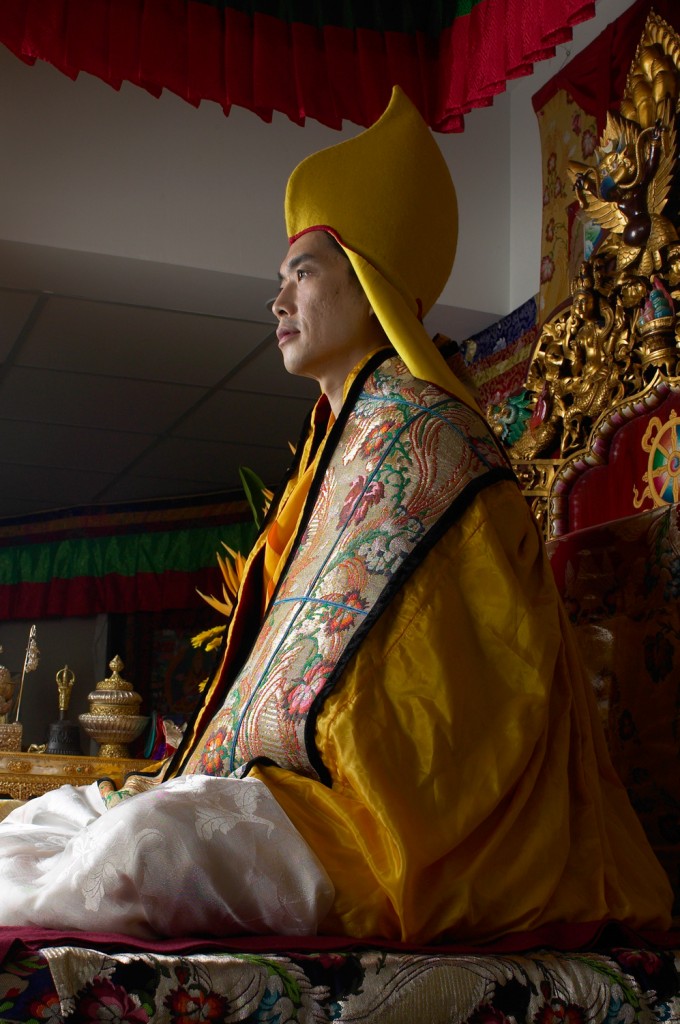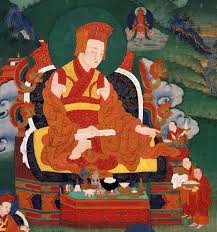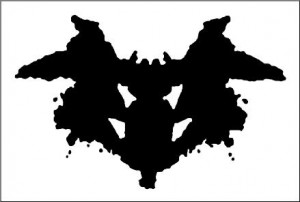
The following is respectfully quoted from “Gurus for Hire Enlightenment for Sale” by Tsem Tulku Rinpoche:
Staying away from harmful companions
Most of us have more negative dispositions than positive, otherwise we would not be in samsara. When the negative dispositions from our previous lives open, we cannot do Dharma practice. In the tantric vows, we are not even allowed to talk to those who scourge, scorn and dislike our Guru. We are not allowed to share food with them, share our instruments or our vajras and bells, or talk about tantric secrets or tantric practice with them anymore. We cannot perform certain prayers or rituals with them anymore because their energy can pollute us, bring us down and trigger the opening of negative energy, negative karma.
You might be thinking that Buddha is not very compassionate. Of course he is compassionate! If, at this level, we allow someone to disturb our practice, how will we become a Buddha to help them? By avoiding them, we are being very compassionate. We send a message to them that we are not happy with what they are doing and unless they reform, we cannot support them and their actions. On a spiritual level, if someone disturbs our practices and pushes us off, how will we become an attained being or a Buddha to benefit them?
At our level, these people’s disturbance and broken samaya can push us off the path, influence us and make us think negatively. There might even be other disciples of the teacher that these people always say negative things to and push them away from the Guru. When these people push disciples away from the teacher, who suffers? The teacher or these people who push others away? Of course it is the people who suffer.
Staying around, associating, communicating with or being close to people who have broken their samaya, against their teachers or our teacher is very dangerous if we do not know how to handle them. We have to be advanced to handle them. After all, if our teacher cannot tame them and control them, how can we?
If we allow them to continue their negative talk or actions, we are not being very compassionate. If we think we can handle them and turn them around, we would have been able to turn them around by now. If we allow them to continue their little games, they will go on for years and years and years. They do not have merits to dig themselves out, and we would actually be helping them to create even heavier negative karma for themselves.
They present a danger to us and to themselves and this is why this text specifically tells us to avoid harmful companions who might try to split us from our teachers.
3) With an attitude like earth: That carries all burdens without ever becoming tired.
The Guru may give us a very small assignment or work designed to help us, push us to become better and better (not better in our view, but better in terms of Dharma, for our future lives). The Guru might make us do something that is very difficult but is that we we are concerned about?
We have checked out the Guru and sworn our refuge with the Guru. Then after the big refuge ceremony and the big offerings, the feelings, the pictures, the lights, candles, incense and effort, when the Guru asks us to please cut our hair about two inches shorter, we reply that we cannot and give 25 reasons why not.
What happened to the whole ceremony, the vows, the allegiance? What happened to the Guru devotion? Do we follow Guru devotion only when it is convenient for us? Does the practice of Guru devotion only apply during a certain time of the month, when we do not have friends, when things are going well for us or when we are not angry?
The whole point of the Guru giving us work — no matter how difficult it is — and us actually doing it, is to break through our ego. When the Guru helps us break through our ego, then when he gives us a higher level of practice, such as practices for controlling our death, we will be able to achieve everything that is included within that practice.
But if we cannot even control our devotion to our Guru, how are we going to control something much higher? If we find it so difficult controlling our speech, our body, and the minor assignments that the Guru asks us to do, how will we be able to do those practices that require us to be free of the ego, to have Bodhicitta and to practice the six paramitas?
A real Guru, who is compassionate and cares, will be very careful to give us assignments and work. The Guru thinks very carefully — he considers our aptitude, who we are, what we can and cannot do. He then gives us all types of work, duties and jobs to develop the six paramitas, such that we can purify our karma and break our ego, our level of perception and our wrong perception of reality. This is for us to reach the next level. Then we he confers higher practices on us, we will get results.
The Guru might also give us jobs or assignments to help us avoid something negative that might happen later on. If we do not believe it and we go against it, we will suffer the result. The guru will not be happy and he will keep trying to find other ways lessen what will happen to us later. If we do what he says the first time, the bad effects may be lessened by 100%. However, even if the Guru cannot help us avoid the bad incident fully, he would still try to lessen the result for us by ten percent.
Our Guru might tell us to work in the center once a month. We say we cannot do that but at the same time, we ask for initiations, retreats, 10 million mantras, and we can actually do these retreats and mantras. There is no difference! Why are we able to do 10 million mantras but unable to work once a month in the center?
If we do not cooperate, why do we need a Guru or a teacher? A Guru or a teacher is someone who is suppose to be compassionate and kind and is out to serve and help us. When we always reject everything the Guru tells us, we have excuses, we are late for everything we are assigned and we never finish anything we are given, that reflects on us and our practice.
Yes, the Guru is a human being who will be disappointed, feel sad and angry and shout at us or tell us off, but the ultimate person who is disappointed is ourselves. The Guru will have even more and greater wisdom than our own mothers and fathers to set us on the right path. The whole point of having a Guru is that the Guru is suppose to have more wisdom to see our past weaknesses, see into our gifts, understand our karma and what is happening to us so he can give us specific practices — both meditative and active — to help us overcome our personal problems, difficulties and sufferings.
However, when assignments are given and out of habit, we immediately say, “No, I can’t do it. I don’t think I can do it,” it is very bad. It is precisely because we think we cannot do it that we are given that assignment! The Guru can see something more.
For example, the Guru might tell us to be generous,to give and not to be miserly. The Guru might tell us to buy silver bowls and to offer them to the Buddhas but we have 101 excuses why we cannot. It is not because we cannot afford the silver bowls but because we are extremely miserly and have many lifetimes of habituation. The Guru can see the result of that and he does his best to break it because no one else can. If other people could have, they would have already done so.
It is like seeing a therapist. First, we check out the reputation of the therapist. We listen and we see some of the results of her clients. When we see that this therapist is wonderful and we hear that she has results, we walk in, pay the fees and we submit, open, surrender and tell her everything, week after week. After a few processes, depending on our problem, we start to find healing. If we resist all the way and do not let go or submit to the therapist, why would we even go for therapy and how would we get the result of therapy? It is the same thing with the Guru.
If we resist, fight, we do not do the assignments the Guru gives us and we covertly cover, or we try to make up things, use sweet words and go round and round, we may have been able to trick our Guru but we cannot trick ourselves and we fail our service, our devotion, and ultimately our own spiritual practice.
Submitting to the Guru is gaining independence, gaining freedom from our ego, samsara and ourselves. That is what a real and qualified Guru helps us to do. When we find such a Guru, we should devote ourselves with folded hands to him. Whatever work he gives us and whatever sufferings there may be, we should endure the work he gives us. We have to be accepting.


